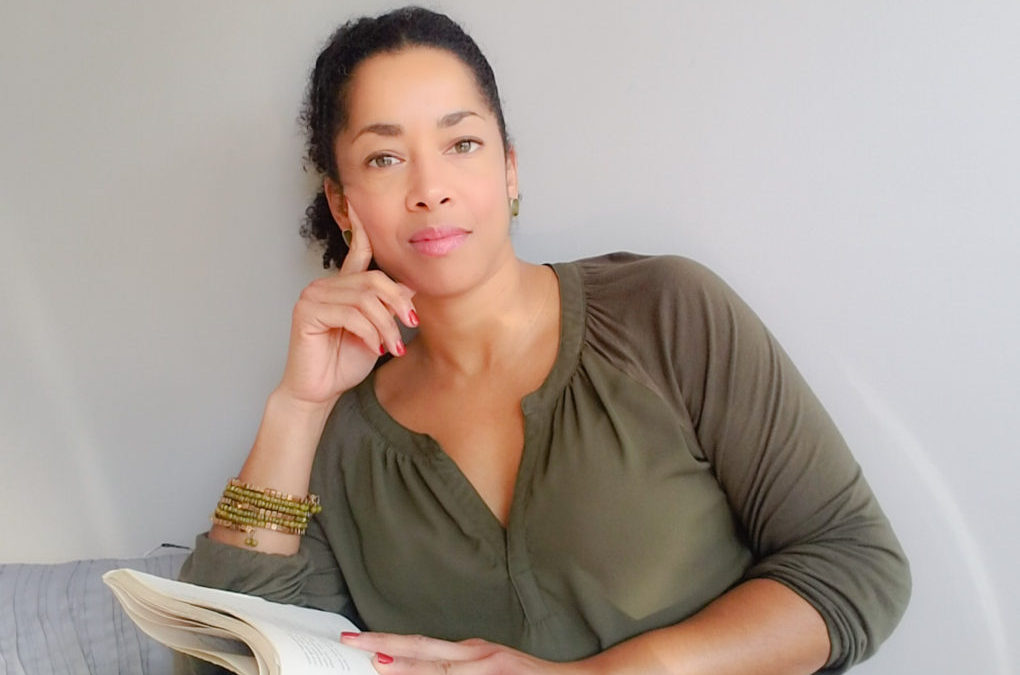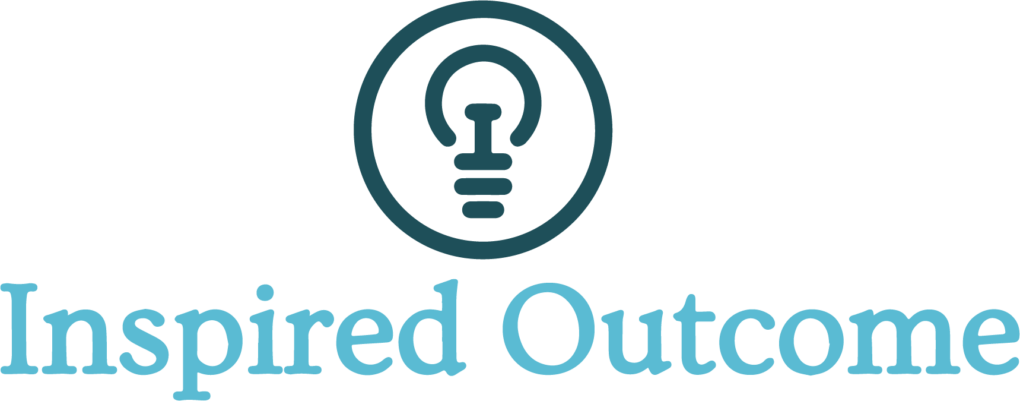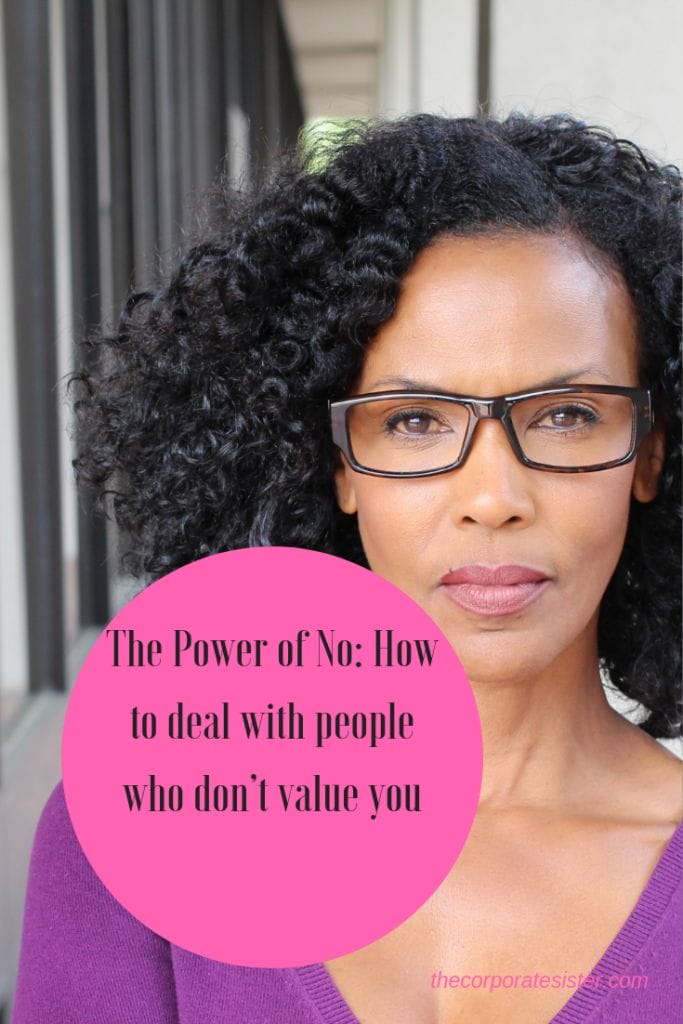
Woman of Impact: Cleonie Mainvielle, Founder and CEO of Inspired Outcome
In the Woman of Impact series, I interview women who are making a difference in others’ lives through their mission and purpose. Cleonie Mainvielle is just one of these women. When I first heard Cleonie speak about her journey and business at a women’s event, I felt like she was talking to and about me. As I later joined her mastermind, I was even more inspired by her mission to help women like myself reclaim our time, energy and ultimately freedom.
If you are a woman or man looking to maximize your own impact, and live and work on purpose, your will enjoy reading about Cleonie and her work! Without further ado, I present to you Cleonie…
1. Could you tell me a bit about you and who Cleonie is?
I am a mother to two fun loving children (9 and 11 yrs old), a wife of 14 yrs and a full-time entrepreneur. My biggest fear is to have lived a life without meaning and purpose because I had wasted too much of my time. This fear is the driving force behind my business and how I structure my life. When my final days are here, I want to feel content that I have lived a life that made a difference and that it was lived well.

2. I like to ask people this question: “What did you want to be when you grow up?”
As a child, I always thought I would grow up to be a teacher or nurse. Teaching and nursing were the roles I gravitated to when I played with my brother or friends. The idea of helping others improve their situation by using the knowledge and skills I have really appealed to me. I started to implement my nursing plan as early as high school when I earned my Licensed in Practical Nursing. But I encountered a major setback when my first college choice accepted me into their Liberal Arts school and not their nursing program. This disappointment turned out to be a great opportunity to challenge my long-held belief that nursing was the route for me.
As I worked to earn extra money at a hospital using my nursing training from high school, I came to realize that although I loved helping people, I didn’t only want to help those who were sick. So, I stopped pursuing nursing, earned my Bachelor in Psychology and later went on to earn my Masters in Social Work. These two degrees turned out to be the best fit since they allowed me to help others with a broader range of issues.
4. Who do you help as your target audience? How do you help them?
I help busy professionals and entrepreneurs organize their schedules and belongings so that they can reclaim their personal freedom and have more time for what is important, joyful and inspiring. I do this by delivering workshops where I teach general productivity and time management strategies. For those who want long term group support to implement strategies learned, I facilitate women-only mastermind groups. These mastermind groups are comprised of 4-5 like-minded women who have agreed to lend each other support, share resources and hold each other accountable as they each strive to achieve ambitious goals.
As the group facilitator, I provide structure and track progress to ensure that the group as well as the individual members are achieving their goals. Lastly, I work with clients one-on-one to help them uncover the specific time management and productivity strategies that fit into their lives and address their specific circumstances.

2. I like to ask people this question: “What did you want to be when you grow up?”
As a child, I always thought I would grow up to be a teacher or nurse. Teaching and nursing were the roles I gravitated to when I played with my brother or friends. The idea of helping others improve their situation by using the knowledge and skills I have really appealed to me. I started to implement my nursing plan as early as high school when I earned my Licensed in Practical Nursing. But I encountered a major setback when my first college choice accepted me into their Liberal Arts school and not their nursing program. This disappointment turned out to be a great opportunity to challenge my long-held belief that nursing was the route for me.
As I worked to earn extra money at a hospital using my nursing training from high school, I came to realize that although I loved helping people, I didn’t only want to help those who were sick. So, I stopped pursuing nursing, earned my Bachelor in Psychology and later went on to earn my Masters in Social Work. These two degrees turned out to be the best fit since they allowed me to help others with a broader range of issues.
4. Who do you help as your target audience? How do you help them?
I help busy professionals and entrepreneurs organize their schedules and belongings so that they can reclaim their personal freedom and have more time for what is important, joyful and inspiring. I do this by delivering workshops where I teach general productivity and time management strategies. For those who want long term group support to implement strategies learned, I facilitate women-only mastermind groups. These mastermind groups are comprised of 4-5 like-minded women who have agreed to lend each other support, share resources and hold each other accountable as they each strive to achieve ambitious goals.
As the group facilitator, I provide structure and track progress to ensure that the group as well as the individual members are achieving their goals. Lastly, I work with clients one-on-one to help them uncover the specific time management and productivity strategies that fit into their lives and address their specific circumstances.
)
5. What do you think are the biggest obstacles for women to achieve the success they want and have the life they’ve always desired?
I think the biggest obstacle for women to achieve the success they want and have the life they’ve always desired is the disconnection between their time and energy investments, and what their desires are. Here is what I mean. When our minutes and energy are assigned to tasks that lack meaning and purpose, those minutes stack up to hours, those hours stack up to days, those days into weeks and weeks into months. Before we know it, we find ourselves living a life that is without meaning and purpose.
So, my work revolves around helping women gain clarity around what their desires are, then helping them reassign those minutes to activities they find important, joyful and inspiring. Along the way, they will encounter limiting beliefs, lack of self confidence as well as habits that can sabotage their progress.
6. What are your three best tips for working women?
I have so many tips to share because I have a healthy obsession with all things that pertain to productivity & organizing. But since I can only chose 3, here are my favorites:
1. Set your intentions before you invest any of your time and energy by asking yourself “What do I intend to take away or contribute to this event/interaction that will move me closer to what I desire?”;
2. Plan your days and weeks ahead by choosing one day each week as well as a specific time each day to map out how you plan to invest your time. This way, you can show up each day focused and clear on your priorities. Otherwise, your schedule will be subject to other people’s priorities and agenda;
3. Schedule the things that are most important to you. A calendar does not have to be limited only to your appointments. Be sure to schedule your priorities to ensure that there is time for them to get done.
7. Last but not least, where can we find you and get in touch with you?
· Company Name: Inspired Outcome
· Website: www.Inspiredoutcome.com
· Email: Cleonie@inspiredoutcome.com
· Phone Number: (774) 213-1630
· Social Media Links: https://www.facebook.com/InspiredOutcome/
https://www.linkedin.com/in/cleonie-mainvielle/
https://www.instagram.com/inspiredoutcome/
Thanks so much for sharing your mission and business with us, Cleonie!
If you want more information about Cleonie and her amazing work at Inspired Outcome, please leave a comment or don’t hesitate to contact her directly!
The Corporate Sister

The Power of No: How to deal with people who don’t value you
Whether at work or in life, you’re bound to meet at least one person who doesn’t value you. This may be a co-worker who steps all over your toes in meeting, or a boss who discredits you in public with zero mercy. It may also be the so-called “friend” who puts their needs and time above yours, or the family member who subtly puts you down every chance they get. Whatever the case is, you may have that one person with whom every interaction leaves you feeling “less than”.

I used to wonder about this, in and outside of the workplace, especially as an introvert with a “too nice” tendency. I also realized that many, if not most, women (and men) face this day in and day out. Many feel that they must put up with it, whether due to the pressure of a paycheck, low self-esteem, or any other way they may rationalize it. Yet, at the end of the day, it becomes necessary to learn to address these situations as productively and authentically as possible:
- Recognize that it starts with you
One major realization I’ve made is that you only attract what and who you are. Relationships really act as a mirror to reflect back your personal beliefs and attitudes to you. The upside of this is that each relationship, whether positive or not, is a gift, especially so with negative relationships. Those are the ones that really show you the areas in your life that need to be worked on. If you’re in need to assert yourself and build up your self-esteem, you will attract the exact people that will rub you the wrong way so as to push you to develop your own sense of self-esteem. If you need more compassion in your life, you’ll attract those who will show you exactly that.
Recognize that it all starts with you, and ask yourself what beliefs and attitudes in you are attracting or reinforcing the behavior of people who don’t value you. If you don’t value yourself, chances are others won’t value you. If you’re showing little regard for your own priorities, time and well-being, why would others do otherwise? After all, you teach people how to treat you.
- Work on your mindset
Once that you recognize that it all starts with you, be willing to work on your mindset. Identify those core beliefs about yourself that may be in the way of your self-worth. Most of these beliefs may come from childhood, from the way a well-meaning (or not so well-meaning) adult treated or spoke to you. They may come from earlier experiences, or from the stories you may be telling yourself about yourself.
Working on your mindset means pinpointing these beliefs, understanding where they come from, and learning to reverse them. This is why affirmations are so powerful at reversing some of the beliefs we may have acquired early on in life. Journaling is a great way to unearth these, and reverse them with opposite affirmations.
- Set clear boundaries
While it all starts with you, there’s also a part of dealing with people who don’t value you that consists in setting clear boundaries. You never have to accept anyone treating you “less than”. It’s ok to say no, and express the fact that you will not deal a certain type of behavior.
Master the art of saying no and not tolerating being under-valued. It’s ok to cancel an appointment, not go some place you won’t feel comfortable in, and confront someone who trespassed the limits of respect and courtesy.
- Be willing to walk away
Last but not least, be willing to walk away and release yourself from situations, places and people who threaten your sense of self-respect and self-worth. This may mean leaving oppressive jobs and professional environments, exiting low-frequency relationships, or drastically changing your life altogether.
Too often, the fear of change, loneliness or not conforming to society’s expectations keeps us way too long in undesirable places that wreck our sense of who we are. The alternative is simply to gracefully and peacefully remind ourselves that we are worth the love and value we give others, and create lives we’re excited, not forced, to live.
How do you deal with people who don’t value you?
The Corporate Sister

Are you sensitive? Here’s why it’s a superpower and how to work it
If you read the title of this post while vigorously nodding your head, then you may already have dealt with what it means to be a sensitive person in the world, and more specifically at work. You may have been labeled as “too nice”, “introverted”, or even as a “pushover”. You may have had to deal with your emotions running haywire when faced with challenging situations such as confrontational relationships, less-than-stellar performance reviews, or toxic office environments. While your generosity, dedication and attention to detail may have earned you the sympathy of some of your colleagues, you may have been at the end of some serious pet peeves from others.
Dr. Elaine Aron, a clinical and research psychologist and expert on high-sensitivity since 1990, has authored five books on the topic, among which one of my favorites, The Highly Sensitive Person. In her books, she defines high sensitivity’s characteristics as a more elaborate depth of processing, easy overstimulation, emotional responsiveness, acute awareness of stimulations, and empathy. Her research, among others, associates these characteristics with the personality trait known as Sensory Processing Sensitivity (SPS). Individuals born with the SPS trait have been proven to be more likely to be bullied at work and suffer from psychological injury. Often, these injuries are inflicted by managers and colleagues with low Emotional Quotient (EQ), and poor self-esteem and interpersonal skills.

In a world, and a workplace at large, that tends to favor those who speak the loudest and the most, often mistaking free speech with assertiveness or smarts, sensitivity can easily be mistaken for weakness. As a sensitive person, I’ve experienced this multiple times, and have had to learn to reframe my own sensitivity from an undesirable attribute to what it really is: a strong, unique, competitive advantage. Here’s why and how your high sensitivity can actually work for your benefit at work:
- With the rise in technology, leaders like you, with empathy, intuition and creativity are needed more than ever!
In one of my fields of expertise, which is accounting, tasks of all sorts are being taken over by bots and computers. Similarly, the traditional role of many professions is rapidly evolving towards almost complete automation. The good news is that the more professional tasks are automated, the more need there is for those qualities and attributes that machines do not possess, such as intuition, creativity, and empathy. These qualities are the trademarks of sensitive people, which makes them incredibly gifted and attuned leaders.
As a sensitive person, you are already equipped for exceptional leadership, which is now in high need and even higher demand in our modern career landscape. Have confidence in your leadership abilities and do not be afraid to display the qualities that make you YOU!
- You have incredible communication skills: use them!
One of the biggest misconceptions around sensitive individuals is that they are poor communicators. Nothing could be further from the truth. One of the hallmarks of high sensitivity is the ability to “read people”. It’s not just about perceiving others’ actions and reactions, but rather catching on to their intrinsic feelings, emotions and motivations. This in turn allows sensitive individuals to tailor their communication style, content and delivery to their specific audience.
This means you can actually understand and address the needs of your team members, superiors, and management. If you’re an entrepreneur, you are in a perfect position to identify and attune to your ideal audience and market. Now how is that for a superpower?
- Harness your unique attention to detail!
As a sensitive person, getting easily over-stimulated also lets me pick up on the tiniest of details. While this can create perfectionist tendencies, which can be harmful, the upside is that I can also pick up on what may have been overlooked. I also notice this trait in most of the sensitive people I know.
In fast-paced professional environments where change is the new normal, this attention to detail is an invaluable asset! Don’t hesitate to use it and let your voice be heard about it as well!
- You are so creative you can solve pretty much any problem!
Repeat after me: I’m an idea magnet! Great ideas just come to you, because you’re so in tune with your inner world and experience amazing clarity breakthroughs. As a sensitive person, your intuition is the gateway to the most innovative solutions and experiments that exist.
Don’t be afraid to share your incredible creativity with the world and be noticed for it! You also may want to consider downloading a note-taking app like Evernote, or just carrying a notebook around just in case the next million-dollar idea hits you! Just sayin’…
Now do you see how what you may have been told from an early age on, was more of a weakness and a disability, can actually propel your career and life forward! When I finally realized what a super power sensitivity really is, when harnessed and used in a productive way, I began truly and authentically thriving in my work and life. However, since sensitive people get easily stimulated, even by subtleties in their environments, the key is to learn to manage your emotions and be as prepared as possible. For me, understanding what triggers me and training myself to either confront it or avoid it, as needed, makes a world of difference. Similarly, preparing for new circumstances, learning to be more flexible, and anticipating changes helps me give my best without the stress of overstimulation.
Are you a sensitive person? How can you start using these tips to reframe your sensitivity as a superpower instead of a burden?
The Corporate Sister.

Take off the mask: 4 keys to honoring your diversity at work
Have you ever felt like despite all the noise around diversity and inclusion, your own diversity at work feels like an obstacle? From the way you wear your hair, to the accent in your voice, or your sexuality, you may have felt like your “difference” made you an outcast. That maybe it was best to wear a mask, and conceal the “extra” diversity that could impair your ability to climb the corporate ladder, get the business loan, make the right contacts, or simply be respected as a valuable colleague.

Don’t get me wrong, most of us wear masks, especially in a professional and/or corporate setting. Just try and compare your boisterous voice at the family cookout last weekend, with your “prim and proper” intonation at the Board meeting. I’ll leave some of the other choice words out….And there’s no shame about it, either. Different contexts sometimes require different parts of our personality. The problem, especially for working women and minorities, occurs when the “mask” becomes a semi-permanent (or permanent) fixture of our careers and lives. When it becomes too hard to be who we truly are and remain authentic. When at times, we’ve even lost sight of who we are, what matters to us, what makes us us, happy, fulfilled, and all the way together…
I remember times at the beginning of my corporate career when I would feel so intimidated that the pitch of my voice would go up several octaves every time I had to speak up. I can also recall the times when sharing that I was born and raised in Senegal was followed by a loud silence in the room, after which I questioned if I should ever reveal this at work again.
There are times when corporate pressure and the fear to lose a paycheck can really make you get out of your true character. Many succumb to this pressure daily, compromising, changing who they are, from the pitch of their voices to the decisions they make on the job. No judgment here, the reality is more complex than we see on the surface, especially when your mortgage payment, kids’ tuition and car note hang in the balance. All of this can make it challenging to take off our corporate and/or professional masks, and really show up authentically in the workplace. This is especially true for working women and minorities, who may stand close to the edge of privilege.
Yet, there is a cost to not honoring your diversity in the workplace. It may be the silent cost of self-betrayal and the resulting lack of fulfillment that ensues. It may also be the lack of confidence from yourself and others. However, as terrifying as it may be, there are ways to honoring your diversity at work and enjoying a more fulfilling career:
- Show up as you are
I was recently listening to a podcast during which an African-American executive woman revealed that wearing her hair in braids at work also gave permission to other women like her to do the same. I remember struggling with my decision to wear my hair natural when I first transitioned to my natural curls. Would “they” be taken aback by my appearance? Would this have a negative impact on my career? Years later, I realize going natural was not just the best decision for me, but it was the best decision for my career. Any place that I would not fit in because of the way I looked was not for me…
So show up as you are. Don’t be afraid to wear your true hair, origin, accent or anything else that makes you you. It’s the best way to figure out where you fit in, and what environments are the most mutually beneficially to you.
- When in doubt, do not hide
One of the most damaging pieces of advice I was ever given, especially as a woman of color, is: “Keep your head down and work hard.” You may also have received the same piece of advice. Over the years, I realized that as working women, and especially as women of color, we’re encouraged to hide behind our performance. We’re tacitly prompted to deny our uniqueness behind longer hours, more masculine attitudes, and the appearance of perfection. Or we’re warned to be cautious and make ourselves invisible.
When in doubt, refrain from hiding who you are. Refrain from shrinking and becoming invisible. Put your head up and make your presence be felt. Don’t just work hard, speak up for yourself too. Allow yourself to take space.
- Be the example of diversity you need
I mentioned earlier the example of the African-American executive who by wearing braids, implicitly gave other Black women in her company permission to do the same. I’ve learnt that honoring your diversity also means putting it to work at the service of a cause greater than yourself. You may be the only image of diversity that some people will see, or one of a few.
You may be the reason why your fellow Latina sister may feel empowered to speak up at the meeting. Your very presence in the room may inspire a young Black girl to start her own business or go for the career of her dreams. You may just be the example of diversity you need yourself. And that is honoring your own diversity…
- Be willing to walk
Sometimes, honoring your diversity also means walking away from environments and places that stifle it. It’s understanding that you can better honor the truth of who you are somewhere else. It’s a painful, but liberating realization.
In all cases, take the lessons you’ve learned with you, let go of any bitterness and resentment and continue on your own journey.
Are you committed to taking off the mask and honoring your own diversity?
The Corporate Sis.

The Mother Load: Does having kids hurt working moms’ careers? (and why it doesn’t)
Does having kids hurt your career? As a working mom, it may be tempting to think so. Just the mere fact of going on maternity leave can sometimes seem like a step back for many working moms, as their absence in the office often puts them at a disadvantage. By the time many working moms come back to work, their most important responsibilities may have been reassigned. Or they may no longer be privy to the same conversations and access they used to have. Even worse, their competencies may be questioned, now that they have to “balance” work and life.
As a result, there is a wide pre-conception that having kids hurts working moms’ careers. According to recent studies, the gender pay gap is largely a consequence of motherhood. A study by the Census Bureaureveals that the earnings gap between spouses of opposite sexes doubles between the two before the couple’s first child is born, and a year thereafter. When surveyed, as in this Pew Research Center’s publication, Americans and Europeans have the tendency to agree with women working part-time or not at all after having children. All in all, the statistics out there are far from being encouraging when it comes to working moms’ careers after children.

In my own experience, having kids actually did wonders for my career. Although I did initially feel, especially after coming back from maternity leave, as if I had made a few steps back, the difference for me was more mental and spiritual. Having children allowed me to start asking myself the tough questions: “What am I here for? What is my purpose? How is my career advancing my purpose?” These questions in turn allowed me to re-direct my work towards a more fulfilling path aligned with who I am and what my purpose is.
Despite the staggering statistics out there, it is up to us, as working moms, to re-frame the context of our own lives and careers. Not in terms of impossible choices to make (having kids or a successful career?), but in terms of how we can integrate, not balance, the various areas of our lives and work to show up and perform in the fullness of who we are:
- Allow the experience of motherhood to help you-re-define yourself
Motherhood is an experience like no other. I strongly believe we’re not born mothers, we become mothers. It’s a wonderful path of constant growth and self-discovery. I’m happy (and relieved) to say that I’m probably learning more from my children than they are learning from me. However, it took me some time to allow this growth and change in myself, as I was stubbornly attached to the way things were and “should be”.
By allowing the experience of motherhood, with all its ups and downs, late appointments, booked schedules, messy mornings and sweet kisses, to change us, we allow ourselves to grow and be re-defined as well. And yes, it also affects our careers and the way we work. It may mean reconsidering our current field, company or occupation entirely. It may mean becoming a stay-at-home mom, or an entrepreneur. It may also mean taking a pay cut, or watch our earnings decline. Whatever it is, it will rock your career, not for the worse, but for the better.
- Give yourself permission to re-direct yourself
Becoming a mom will change your life, and it will change your career. Not that you necessarily need to change jobs, or switch companies, or go hiking in the Himalayas. But it will change the way you perceive the work you do. For some, it may be a confirmation of what you are already doing. For others, it may be a total re-direction.
This is where it’s crucial to give yourself permission to re-direct yourself and your work. Does it mean you should get up and leave the job that is paying rent and putting food in the kids’ mouths? No. Yet, it means being opened to a gradual evolution in your work. It may be developing a side hustle into a business while you keep your day job. It may be asking for more flexibility or considering a lateral move in your company. Whatever it is, give yourself permission to consider and explore it, one bit at a time.
- Trust the process
Last but not least, trust the process. Being a working mom is not something you can plan on a day to day basis. Things will happen, laundry will pile up, traffic will keep you from making it to work on time, and poopy diapers will have you re-consider the very meaning of life.
Yet, this is not a sign that kids are derailing, slowing down or hurting your career. It’s just the signal that change is here to help you become your best self.
Do you think having kids has hurt or benefited your career?
The Corporate Sis.






